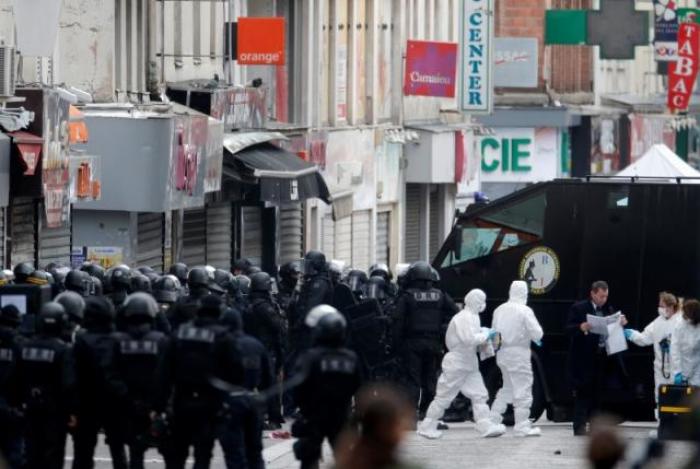Could Paris, Cologne Terror Attacks Happen in America? (Pt. 2)

A number of U.S. experts on policy and migration have shot down fears of the shootings in Paris and the sex attacks in Cologne happening in America, noting that a direct link with the influx of refugees has not been established in either case, and affirming that America has a strict vetting system.
There has been significant debate in the U.S. over the question of whether 100,000 refugees fleeing war and terrorism should be allowed into the country. Some notable voices, such as evangelical preacher the Rev. Franklin Graham, have directly suggested that attacks, such as the major shootings in Paris, France, in November that led to 130 deaths, and the gang sex assaults in Cologne, Germany. on New Year's Eve, could very well be repeated on U.S. soil.
Dr. Robert P. George, chairman of the U.S. Commission on International Religious Freedom, and Susan Fratzke, policy analyst and program coordinator at the Migration Policy Institute, an independent, non-partisan think tank, told The Christian Post in separate interviews, however, that it would be unfair to suggest that welcoming more refugees will heighten the risk of such attacks happening in America.
"The 2015 terrorist attacks in France were mainly perpetrated by citizens of the European Union, not refugees. The three attackers in the January 2015 attacks on Charlie Hebdo magazine and a kosher supermarket were French citizens. Of the nine attackers in the November 13, 2015 Paris attacks, 7 were EU (French or Belgian) citizens. The other two attackers seem [to] have entered the EU in 2015 among refugees and migrants, but their identities and citizenship are still unclear," George told CP.
"These cases illustrate the risks of allowing people to enter without screening, which is not the case with U.S. refugee resettlement," he said.
Fratzke added that the Syrian passports found on one of the suspects in the November Paris attacks were shown to be fake, and stressed the importance to withhold judgment until all the facts are known.
"In addition, refugees who enter the U.S. through the resettlement program are heavily vetted before arriving and screened against several security databases. No refugee resettled to the U.S. has, to our knowledge, ever carried out a terrorist act," she said.
George noted that the perpetrators of the terror attacks in Paris were individuals who subscribe to the extremist ideology of the Islamic State and other similar groups, and said that many of the refugees are fleeing precisely such violence.
"The United States can and must take the strongest possible security precautions in receiving refugees, but we must not fall prey to the fear that refugees who happen to be Muslims are terrorists in disguise," he urged, adding that many of victims of terror in Syria and Iraq are Shia and Sunni Muslims who have resisted violent ideology.
Fratzke said that regardless of whether the Paris and Cologne attacks are connected, there is some validity to concerns regarding the lack of registration or identity verification in Europe.
"Authorities in Greece and along the route have been overwhelmed. Refugees and migrants arriving in Europe are not properly fingerprinted, nor are their identities, biometrics, and histories verified against known databases. Systems to do this exist in Europe, but they are not being enforced," the MPI policy analyst highlighted.
She added that unlike the case in Europe, refugees coming to America are screened and their refugee claim status is assessed before they ever step foot in the country. The refugees are also required to pass extensive security and biographic checks before they arrive.
"While both systems (asylum and resettlement) are valuable, the resettlement system offers a safe path to safety for refugees, that negates the need for them to use smugglers and undertake dangerous sea journeys," Fratzke said.
"Resettlement also allows more control for the state taking the refugees in terms of who is coming, when they arrive, etc. A robust resettlement system from the Syria region could perhaps be to Europe's benefit by allowing some of the current flows to happen in a more orderly way."
In a previous interview with CP, Stefani Weiss, director and expert on European politics at Bertelsmann Stiftung, an independent, nonprofit German foundation, also talked about some of the particularities of the vetting systems in Europe, noting that because of the Schengen Agreement that created borderless areas, it is up to countries with outer borders, such as Italy and Greece, to deal with the initial influx of refugees and properly vet and register them.
READ: Exploring Germany's Refugee Crisis: Cologne Sex Attacks to Vetting System (Interview) (Pt. 1)




























